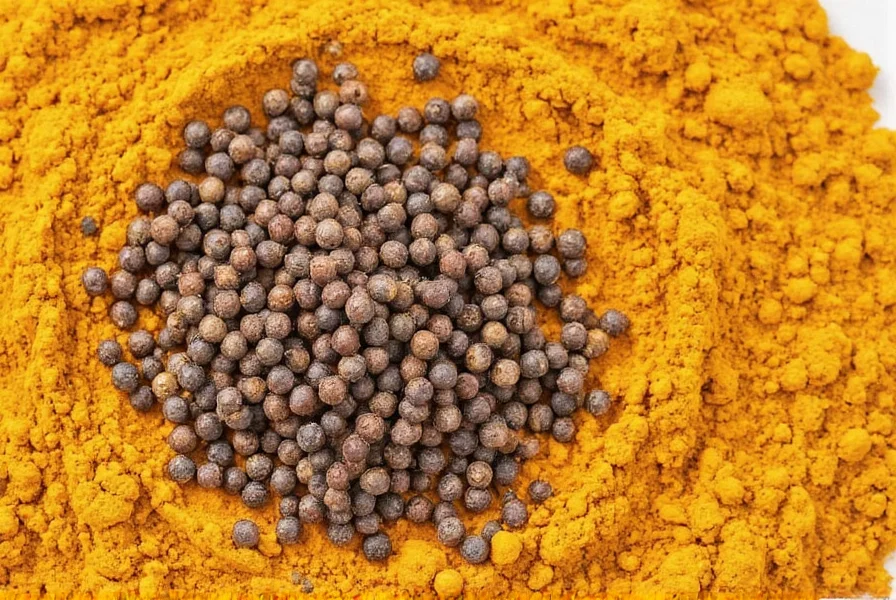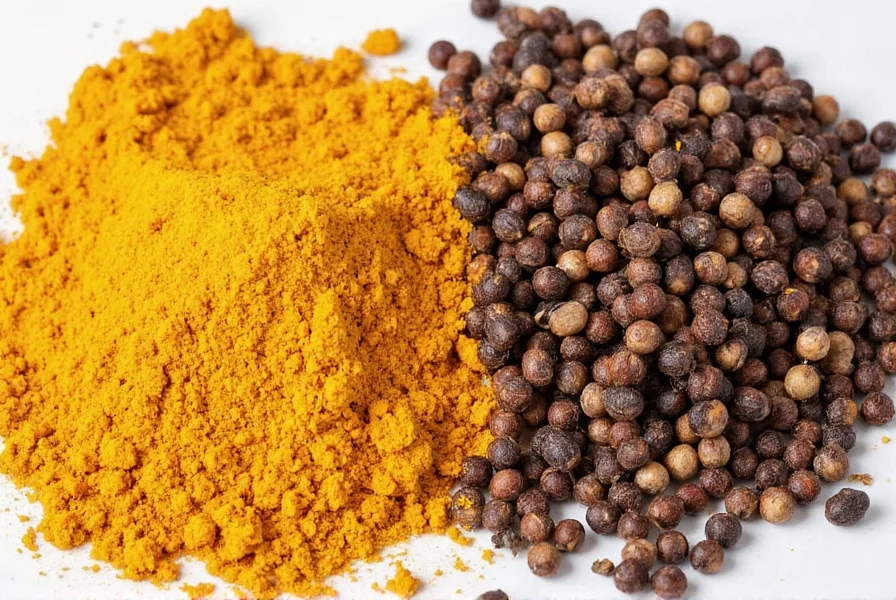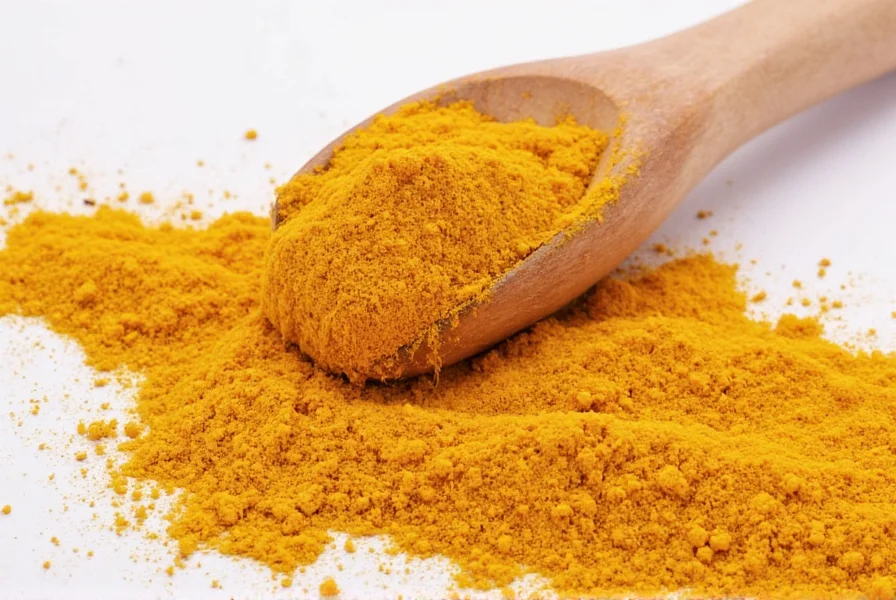When exploring natural wellness solutions, the combination of turmeric and black pepper represents one of the most researched and effective pairings in nutritional science. The active compound in turmeric, curcumin, offers numerous potential health benefits but suffers from notoriously poor bioavailability when consumed alone. Black pepper, specifically its active component piperine, addresses this limitation through a well-documented biochemical mechanism.
The Science Behind Turmeric's Bioavailability Challenge
Curcumin, the primary bioactive compound in turmeric, demonstrates promising anti-inflammatory and antioxidant properties in laboratory studies. However, its therapeutic potential in humans is significantly limited by three key factors:
- Low solubility in water
- Rapid metabolism in the liver and intestinal wall
- Quick systemic elimination
Research published in Planta Medica demonstrates that when consumed alone, curcumin has extremely poor absorption rates, with blood plasma levels remaining negligible even after high-dose administration. This explains why traditional Ayurvedic medicine has long paired turmeric with black pepper—a practice now validated by modern science.
How Black Pepper Enhances Turmeric Absorption
The magic happens through piperine, the alkaloid responsible for black pepper's pungency. Piperine works through multiple mechanisms to dramatically improve curcumin bioavailability:
| Mechanism | Effect on Curcumin | Research Finding |
|---|---|---|
| Enzyme inhibition | Slows liver metabolism | Increases blood concentration by 2,000% |
| Gut absorption enhancement | Improves intestinal uptake | Boosts absorption by 30-60% |
| Slowed elimination | Extends circulation time | Doubles elimination half-life |
A landmark study from the Journal of Pharmacology and Experimental Therapeutics found that combining 20mg of piperine with 2g of curcumin increased curcumin bioavailability by an astonishing 2,000% in human subjects. This dramatic improvement transforms curcumin from a poorly absorbed compound to one with meaningful systemic presence.

Evidence-Based Health Benefits of the Combination
The enhanced bioavailability translates to more significant potential health benefits. Research suggests this pairing may support:
- Inflammation management: A 2016 review in Food Science & Nutrition noted significantly greater anti-inflammatory effects when curcumin was combined with piperine compared to curcumin alone
- Joint health: Clinical trials show improved mobility and reduced discomfort in individuals with joint concerns who consumed the combination
- Cognitive support: Enhanced curcumin levels may better support brain health through multiple pathways
- Metabolic health: Some studies indicate potential benefits for maintaining healthy metabolic markers
Practical Applications for Daily Use
Understanding how to effectively incorporate this powerful pairing into your routine makes all the difference. Consider these evidence-based approaches:
Culinary Integration
When using turmeric in cooking, always add freshly ground black pepper. The heat from cooking helps release curcumin, while piperine ensures your body can utilize it. For optimal absorption:
- Add 1/4 teaspoon of black pepper to recipes containing turmeric
- Include healthy fats (like coconut oil or olive oil) as curcumin is fat-soluble
- Heat turmeric slightly to increase solubility
Supplement Considerations
When selecting supplements, look for products that specifically include:
- Standardized curcumin extract (typically 95% curcuminoids)
- Piperine (usually listed as BioPerine®) at 5-10mg per serving
- Third-party testing verification
For maximum benefit, take turmeric supplements with a meal containing healthy fats. The combination of fat, piperine, and food stimulates bile production, further enhancing absorption.

Safety and Dosage Guidelines
While generally well-tolerated, certain considerations apply when using turmeric and black pepper:
- Standard dosage: Most studies use 500-2,000mg of curcumin daily with 5-20mg of piperine
- Medication interactions: May interact with blood thinners, diabetes medications, and certain chemotherapy drugs
- Pregnancy: Consult healthcare provider before regular use during pregnancy
- Digestive sensitivity: High doses may cause mild gastrointestinal discomfort in some individuals
Individuals with gallbladder issues should consult a healthcare professional before regular use, as turmeric may stimulate bile production. Those scheduled for surgery should discontinue use at least two weeks beforehand due to potential effects on blood clotting.
Maximizing Your Turmeric Experience: Evidence-Based Tips
For those seeking to optimize the benefits of turmeric and black pepper, consider these research-supported strategies:
- Timing matters: Take turmeric supplements with your largest meal of the day for optimal absorption
- Fat pairing: Consume with foods containing healthy fats (avocado, nuts, olive oil) to further boost absorption
- Consistency is key: Benefits accumulate over time—regular daily use yields better results than sporadic consumption
- Quality counts: Choose products with verified curcumin content and standardized piperine
The synergy between turmeric and black pepper represents a perfect example of how traditional wisdom aligns with modern scientific understanding. By understanding and applying these evidence-based principles, you can significantly enhance your body's ability to benefit from turmeric's potential health properties.
Frequently Asked Questions
How much black pepper should I use with turmeric for optimal absorption?
Research indicates that just 1/4 teaspoon (approximately 5mg) of black pepper is sufficient to enhance curcumin absorption by up to 2,000%. This small amount provides enough piperine to inhibit metabolic enzymes without overwhelming the flavor of your dish or supplement.
Can I use white pepper instead of black pepper with turmeric?
White pepper contains significantly less piperine than black pepper, making it less effective for enhancing curcumin absorption. Black pepper (Piper nigrum) in its whole, freshly ground form provides the highest concentration of piperine, the compound responsible for the absorption-boosting effect.
How long does it take to notice benefits from turmeric and black pepper combination?
Most research studies showing measurable benefits used the combination for 4-8 weeks. Individual responses vary based on health status, dosage, and consistency of use. Some people report noticing effects within 1-2 weeks, while others may require a month or more of regular use to experience noticeable benefits.
Does cooking affect the turmeric and black pepper synergy?
Cooking actually enhances the synergy. Heat helps release curcumin from turmeric's structure, while adding black pepper during cooking allows piperine to interact with curcumin throughout the cooking process. For best results, add both ingredients early in the cooking process and include a healthy fat source.











 浙公网安备
33010002000092号
浙公网安备
33010002000092号 浙B2-20120091-4
浙B2-20120091-4